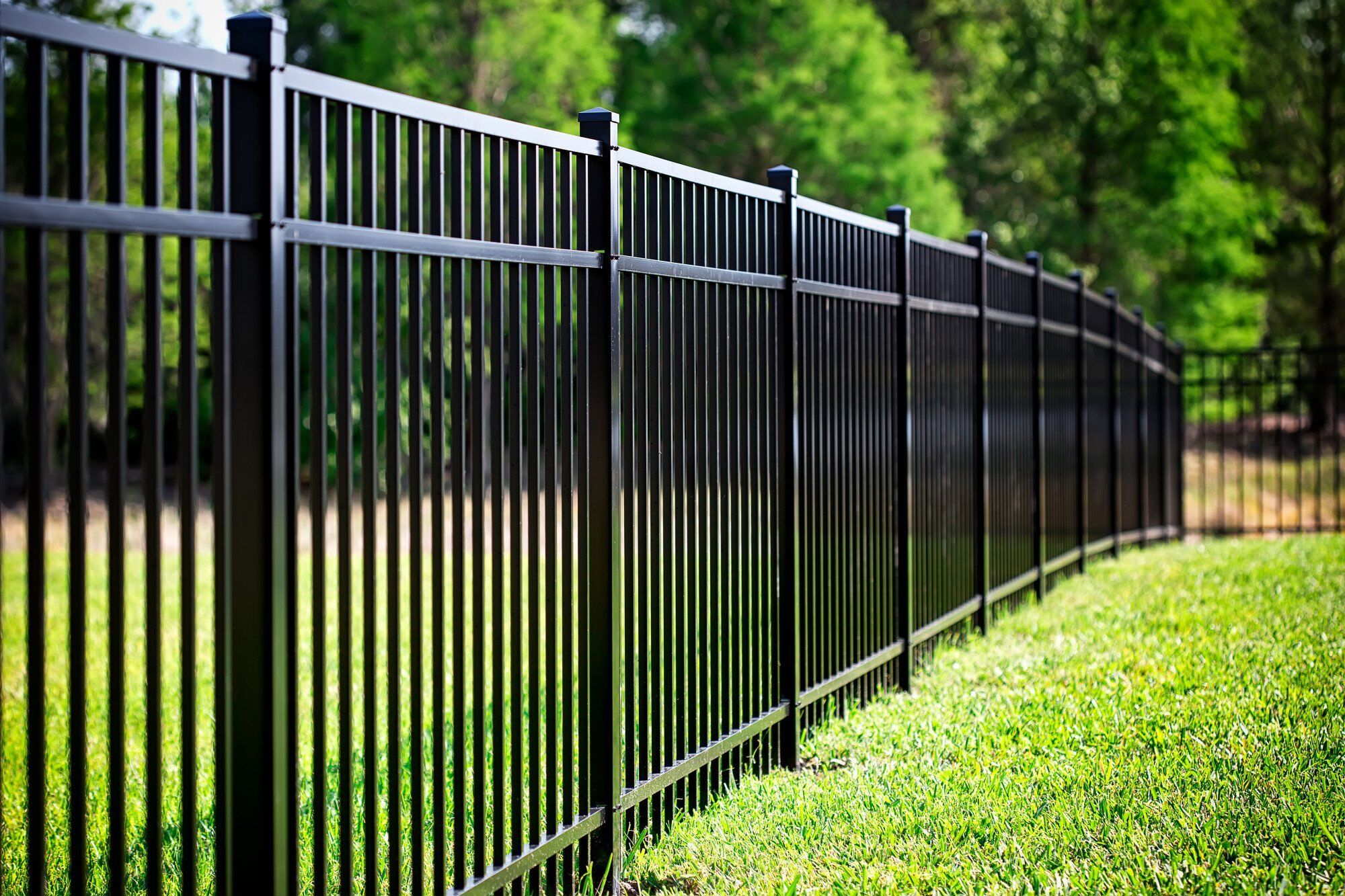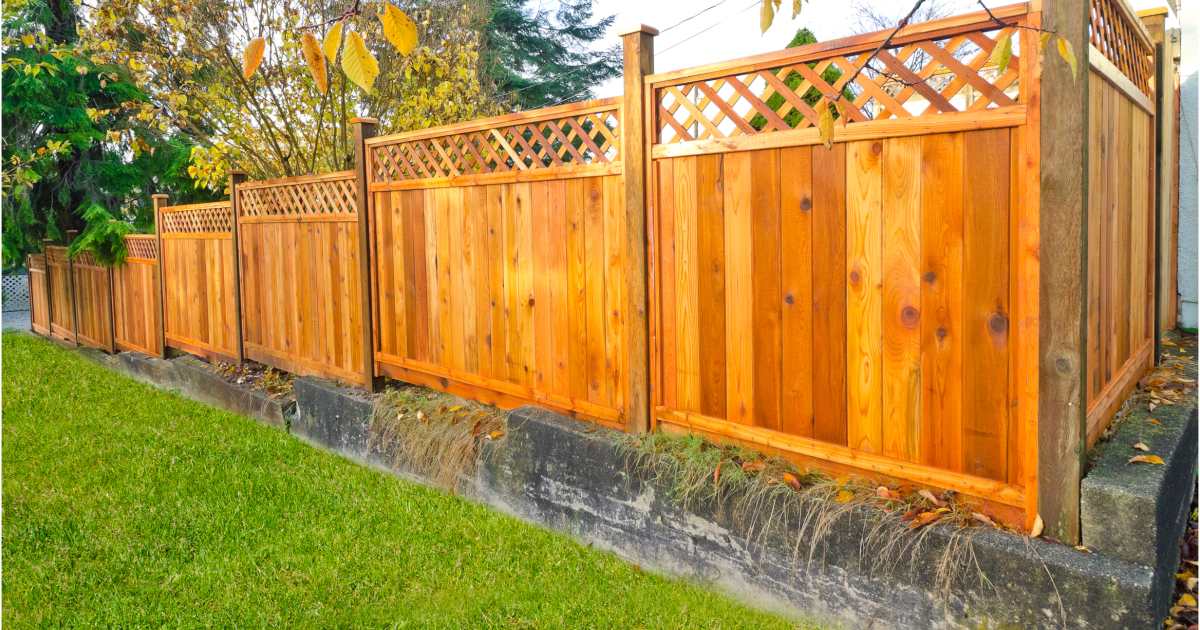All Categories
Featured
If you're considering installing a fencing around your residential or commercial property, understanding the authorization requirements in your location is essential. While constructing a fence might seem like a basic DIY task, a number of regulations might regulate its construction depending on where you live. Stopping working to get the appropriate permits can result in fines, charges, or perhaps having to get rid of the fence completely. In this overview, we'll damage down the various authorizations you may need to install a fencing and how to ensure your project remains certified with neighborhood legislations.
Why Are Permits Necessary for Fencing Installment? Permits are needed to ensure that the fence you construct abide by local building ordinance, zoning policies, and security requirements. These permits are in place to shield your residential property, the buildings around you, and the setting. They ensure that the fencing won't obstruct utilities, website traffic flow, or create risks for pedestrians. In addition, they assist preserve the architectural and aesthetic integrity of your community.
![]()
Kinds of Permits You Might Need. Building Permit. A structure authorization is the most usual need for installing a fence. If your fencing exceeds a specific elevation (generally around 6 feet), you might require to obtain a structure license.
Zoning License. Zoning laws control land use in your location, and they usually manage where fences can be set up, along with exactly how high they can be. A zoning authorization ensures that your fencing conforms with these regulations. Your fencing might require to be established back a particular distance from pathways or residential or commercial property lines. Zoning regulations can vary by neighborhood, so it's crucial to inspect the details guidelines that relate to your area.
Homeowners Organization (HOA) Approval. If your home becomes part of a house owners association, you might need authorization before setting up a fence. HOAs often have rigorous regulations regarding the type, style, and materials used for fencings to keep a consistent appearance throughout the community. The HOA may need you to submit detailed plans or request approval before installation. See to it you follow these standards to avoid potential penalties or charges.
Specialized Permits. In some situations, you might require specialized allows based upon the place of your property or the nature of your fencing. If your residential or commercial property is in a flood area, you may require extra authorizations to make certain that your fencing does not block drain or water circulation. Similarly, if you prepare to develop a fencing near an eco protected area, you might need a special authorization to follow ecological regulations.
![]()
Energy Easements and Energy Company Approvals. Prior to setting up a fence, you must examine if your building has an easement. Constructing a fencing within an easement might conflict with energy upkeep or damages underground lines.
Exactly How to Identify Which Allows You Required. Get In Touch With Neighborhood Authorities. The very first step in establishing the permits needed is to contact your neighborhood structure department or zoning office. They can supply certain information about what authorizations are essential for your location. Several cities have on-line resources or websites where you can examine the requirements or perhaps obtain a license online.
Speak With an Expert Fence Service Provider. A local fencing specialist is commonly knowledgeable about the license procedure and local laws. They can help you browse the demands and make sure that your job is certified. Numerous specialists likewise take care of the authorization application procedure in your place, saving you time and effort.
Review Your Area's HOA Standards. If you live in a community controlled by an HOA, make certain to examine their standards prior to getting any kind of authorizations. The HOA may call for details styles, materials, or height restrictions for fencings within the neighborhood. Submit your plans to them for authorization prior to proceeding.
![]()
Consequences of Not Acquiring a License. Setting up a fencing without the needed authorizations can bring about significant consequences. You may face penalties, be bought to remove the fencing, or be called for to redesign the setup to meet code needs. In enhancement, selling your home might be made complex if the fencing does not meet regional policies. Prospective purchasers might think twice to purchase a home with an unpermitted fence, specifically if it's in offense of zoning laws.
Verdict. Before mounting a fence on your residential or commercial property, make certain you understand the neighborhood guidelines and acquire any type of required permits. Building authorizations, zoning authorizations, HOA authorizations, and specialty allows all play a critical role in making sure that your fencing is safe, legal, and certified.
Why Are Permits Necessary for Fencing Installment? Permits are needed to ensure that the fence you construct abide by local building ordinance, zoning policies, and security requirements. These permits are in place to shield your residential property, the buildings around you, and the setting. They ensure that the fencing won't obstruct utilities, website traffic flow, or create risks for pedestrians. In addition, they assist preserve the architectural and aesthetic integrity of your community.

Kinds of Permits You Might Need. Building Permit. A structure authorization is the most usual need for installing a fence. If your fencing exceeds a specific elevation (generally around 6 feet), you might require to obtain a structure license.
Zoning License. Zoning laws control land use in your location, and they usually manage where fences can be set up, along with exactly how high they can be. A zoning authorization ensures that your fencing conforms with these regulations. Your fencing might require to be established back a particular distance from pathways or residential or commercial property lines. Zoning regulations can vary by neighborhood, so it's crucial to inspect the details guidelines that relate to your area.
Homeowners Organization (HOA) Approval. If your home becomes part of a house owners association, you might need authorization before setting up a fence. HOAs often have rigorous regulations regarding the type, style, and materials used for fencings to keep a consistent appearance throughout the community. The HOA may need you to submit detailed plans or request approval before installation. See to it you follow these standards to avoid potential penalties or charges.
Specialized Permits. In some situations, you might require specialized allows based upon the place of your property or the nature of your fencing. If your residential or commercial property is in a flood area, you may require extra authorizations to make certain that your fencing does not block drain or water circulation. Similarly, if you prepare to develop a fencing near an eco protected area, you might need a special authorization to follow ecological regulations.

Energy Easements and Energy Company Approvals. Prior to setting up a fence, you must examine if your building has an easement. Constructing a fencing within an easement might conflict with energy upkeep or damages underground lines.
Exactly How to Identify Which Allows You Required. Get In Touch With Neighborhood Authorities. The very first step in establishing the permits needed is to contact your neighborhood structure department or zoning office. They can supply certain information about what authorizations are essential for your location. Several cities have on-line resources or websites where you can examine the requirements or perhaps obtain a license online.
Speak With an Expert Fence Service Provider. A local fencing specialist is commonly knowledgeable about the license procedure and local laws. They can help you browse the demands and make sure that your job is certified. Numerous specialists likewise take care of the authorization application procedure in your place, saving you time and effort.
Review Your Area's HOA Standards. If you live in a community controlled by an HOA, make certain to examine their standards prior to getting any kind of authorizations. The HOA may call for details styles, materials, or height restrictions for fencings within the neighborhood. Submit your plans to them for authorization prior to proceeding.

Consequences of Not Acquiring a License. Setting up a fencing without the needed authorizations can bring about significant consequences. You may face penalties, be bought to remove the fencing, or be called for to redesign the setup to meet code needs. In enhancement, selling your home might be made complex if the fencing does not meet regional policies. Prospective purchasers might think twice to purchase a home with an unpermitted fence, specifically if it's in offense of zoning laws.
Verdict. Before mounting a fence on your residential or commercial property, make certain you understand the neighborhood guidelines and acquire any type of required permits. Building authorizations, zoning authorizations, HOA authorizations, and specialty allows all play a critical role in making sure that your fencing is safe, legal, and certified.
Latest Posts
What Permits Are Required for Installing a Fence My Area?
Published Dec 18, 24
0 min read
Just How Much Does It Cost to Set Up a Fence on a Residential Residential property?
Published Dec 18, 24
0 min read
Specialist Electric Accessory Fixes for Reliable Performance
Published Dec 18, 24
1 min read
More
Latest Posts
What Permits Are Required for Installing a Fence My Area?
Published Dec 18, 24
0 min read
Just How Much Does It Cost to Set Up a Fence on a Residential Residential property?
Published Dec 18, 24
0 min read
Specialist Electric Accessory Fixes for Reliable Performance
Published Dec 18, 24
1 min read